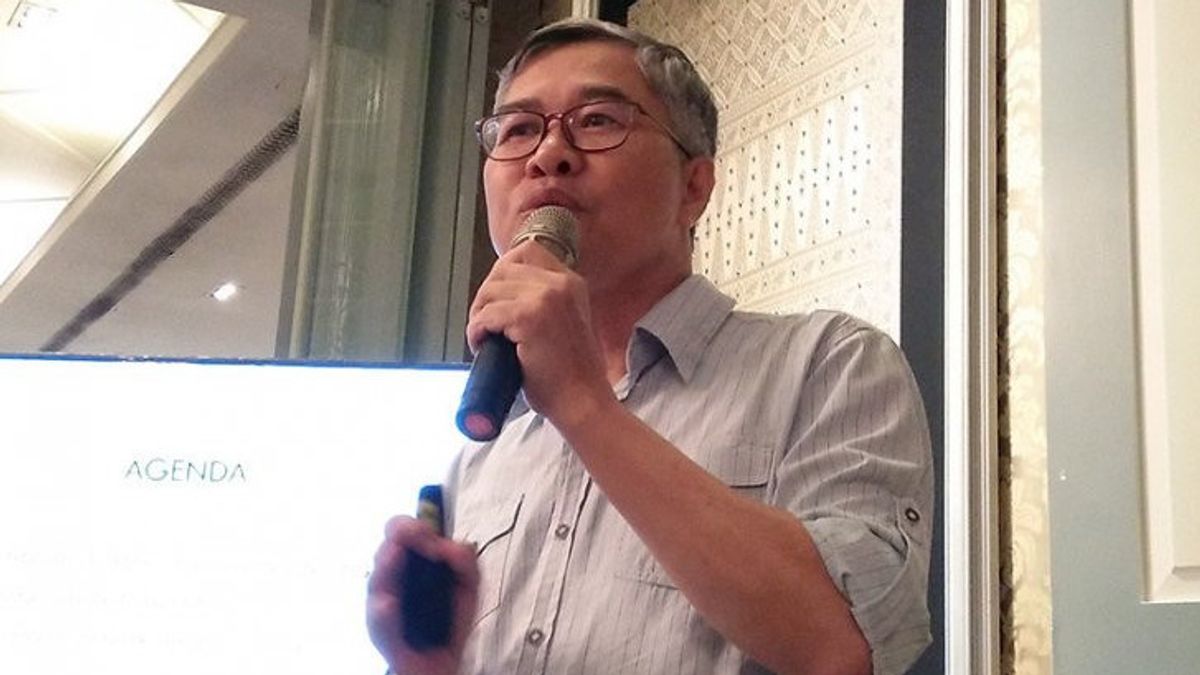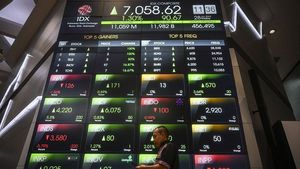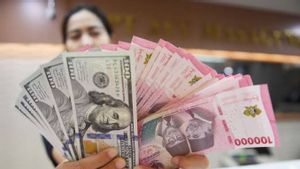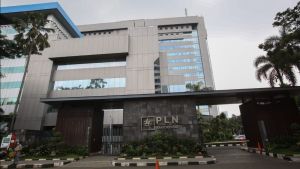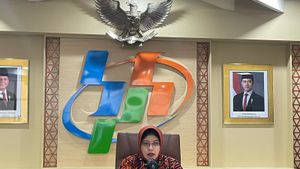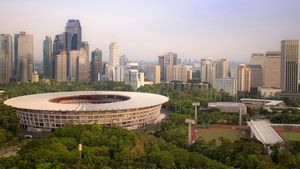JAKARTA - The government is optimistic that economic growth in the third and fourth quarters will be able to reach above 5 percent year on year (yoy).
However, he continued, this optimistic attitude must also be based on religious indicators and sizes.
"So, what the Coordinating Minister for the Economy Airlangga Hartarto said is not a hoax. The government must always be optimistic, but measurable," Piter told reporters, Tuesday, October 11.
According to him, Indonesia's condition is still quite good and is believed to be able to survive the global recession.
The reason is, Indonesia is different from countries that rely too much on exports.
"Indonesia's economy relies more on domestic consumption which is expected to improve as the pandemic subsides. In addition, on the export side, commodity prices will still be helped," he said.
Even so, Piter admits that the global recession will certainly hold back or even lower commodity prices.
However, he said, this did not make commodity prices fall.
Commodity prices will remain quite high and benefit Indonesia, which relies on commodities.
With this condition, said Piter, even when affected by the global recession, Indonesia is expected to be able to survive even though economic growth will slow down.
"Even if Indonesia is affected by the global recession, it is estimated that it will only make our economic growth slow down and cannot reach the target of more than 5 percent. That is a bad scenario. Our best scenario can still grow above 5 percent," he said.
Consumer Optimism
Deputy Director of Indef Eko Listianto said the public was still optimistic in the midst of the increase in fuel prices and the state of the world economy.
This is reflected in the consumption behavior of the Indonesian people, especially towards the end of the year.
"If you look at this, you are optimistic, actually, I think it's quite rational, objective, why, because this consumer must have compared it to the situation a few months ago, especially when there were restrictions. Now you could say entering an endemic, there is optimism that it can move, try again," he said.
The Bank Indonesia Consumer Survey in September 2022 indicated that consumer optimism for economic conditions was maintained.
This is indicated by the Consumer Confidence Index (IKK) in September 2022 of 117.2, or remains at an optimistic level (indeks more than 100), although lower than the previous month of 124.7.
Eko said that the middle class affected by the increase in fuel prices began to adapt.
According to Eko, public consumption remains high amid rising prices due to fuel price adjustments.
"This is mostly the middle class who are affected by the increase in fuel prices, but they still have savings, this condition is compacting when corona has many restrictions," said Eko. Moreover, said Eko, before the end of the year, there will be religious celebrations, namely Christmas and New Year's 2023.
After two years, this time Christmas will be more lively, and people will start a vacation.
The movement of the community will be reflected in the form of the economy.
"It will be represented from the consumption level, even though it is followed by an increase in prices," he said.
With Nataru's moment, said Eko, inflation is expected to be in the range of 6 percent with economic growth at 5 percent. This means that economic growth remains strong due to domestic economic support.
Previously, Coordinating Minister for Economic Affairs Airlangga Hartarto was optimistic that economic growth in the third and fourth quarters could penetrate 5.2 percent yoy.
This optimism is supported by early indicators that continue to strengthen. However, this projection is lower than the achievement of economic growth in the second quarter which reached 5.44 percent YoY. "Economic growth in the three quarters above 5 percent and in the third and fourth quarters will be around 5.2 percent that can still be achieved. Domestic consumption is still strengthening, as well as the formation of gross fixed capital (PMTB) and the pace of the higher processing industry," said the chairman of Golkar.
Meanwhile, data from the real-time sector until the third quarter recorded improvements ranging from the trading balance in August recorded a surplus of 5.76 billion US dollars higher than the surplus in the previous month of 4.22 billion US dollars.
Then, the consumer confidence index (IKK) was recorded to be still above 100 or 117.2 in September. Also, the position of foreign exchange reserves is 130.8 billion US dollars.
"This indicator proves that Indonesia's resilience rate is relatively high. Indeed, we see that several countries have high returns, accompanied by interest rates up to stocks," he said.
The English, Chinese, Japanese, Arabic, and French versions are automatically generated by the AI. So there may still be inaccuracies in translating, please always see Indonesian as our main language. (system supported by DigitalSiber.id)
